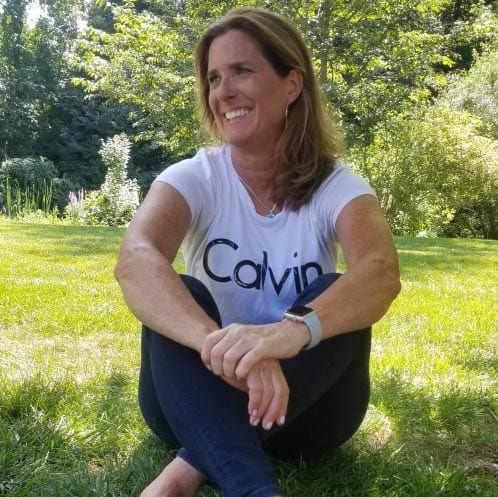It used to be that only authors would write books. People with talent for crafting a story. Authors whose purpose in life was to make their imaginings come alive in the form of a book. Writers whose soul wouldn’t let them rest until their deepest feelings are expressed as an art form.
Today, anybody and everybody can write a book. Although humans are universally the same, we are also individually unique beings who should celebrate our distinct life experiences, a particular point of view, maybe a piece of wisdom to impart or some “how-to” knowledge that is useful. Do you feel you have a story to tell?
I believe anyone can use their personal mix of humanity to create a book. Don’t get me wrong. You don’t just sit down and write a book. That’s not how it works. You have an idea, you write a sentence, then a paragraph, and eventually an entire chapter. Writing happens one step at a time, in bits and pieces, because it’s a process.
“Ideas are a dime a dozen. Execution is everything.”
That’s a common saying in Hollywood, but I think it’s equally apt in becoming a writer, though writing is not quite as glamorous. It’s about executing each step of the process as best as you can and staying motivated when you face self-doubt or obstacles along the way.
I was lucky because I was unknowingly prepared. Why? I loved to read and there was always a good book on my nightstand, whether a short story, a novel, an anthology- all these formats proved to be initial research.
Now I help people like you tackle How to Actually Write… and finish the book you dream of writing. I have many tips for creating characters or character development, but that is whole separate blog post.
Step 1: Determine what the book is about.
After researching different books from various times, places, genres, and points of view, decide what your book will be about. This can go the other way, too. Either way, think in terms of a beginning, middle and end.
Sometime it’s easier to decide your main THEME by thinking about your favorite books and movies throughout your life – were they all about an underdog? Maybe you like when the underdog shines … if that’s a theme that resonates with you, consider including that element in what you write about. Try to decide on the narrator a week or so into your month-long brainstorming.
Write Coach tip: Buy a good leather-bound notebook for all your notes or to journal about your process. It could also be a place to keep fresh ideas or an inspiration list.
Step 2: Consistency makes creativity easier.
The best-selling authors of the world are intentional about embracing the writing process. Set a time to work on your book every day. Establish a place to write. It’s the location you will go every time you’re ready to work. Set a daily word count goal. Some days the words will flow easily, other days may be tougher and some still may be filled with Writer’s Block. Get up and start again the next day.
Set a total word count for your book. 40,000-60,000 is the number of words in a standard nonfiction book, like The Great Gatbsy. If that seems daunting, give yourself a weekly deadline. I have a calendar set daily to “write 2 pages of 1978” (this is the current book I’m working on about growing up as a triplet during momentous things like the Blizzard of ‘78). I find that writing 2 pages each morning is minimal effort, kind of like going to the gym.
Write Coach tip: Give yourself a ONE MONTH deadline from the moment you decide to write your first book to the day you write your first paragraph. If you take the month to map out your characters, story arc, and themes, your book will almost write itself.
Step 3: Create a Dramatic but Clear Protagonist.
Take your key from any Disney movie you’ve ever seen. Every main character faces either some adversity or an antagonist, like an evil Uncle or wicked Stepmother. Or, as I like to say for added drama, an archnemesis. I promise you that if your main character does not have a driving force or hurdle, then he or she will be BORING.
Start your book with at least a general idea of the outcome, in other words, work out the details of where and when things change for the main character. Figure out your characters’ motivations beforehand – a much easier time than when you are half way through the book.
Write Coach tip:. Remember that characters – and the world around them – should constantly be on the move.
Write Coach’s sample protagonist teasers (from “Silent Knight”):
- Will is the Protagonist of “Silent Knight.”
- Will has a stutter. Will loves to read. Will is smart, caring and an orphan. The key thing is that we know almost everything about WHO Will is (*not just appearance and age, etc.)
- We need to ask, “How do Will’s actions and thoughts influence others?”
- Lesser characters matter, too. Be sure to ask and answer these same questions above about: Mrs. Blanchard, Andrew, Sarah, Katherine, Alex, Chris, etc.
Step 4: Get Started with ACTUALLY WRITING YOUR BOOK.
“A job begun is a job half done.” –Mrs. LeMaitre
You spend a month in preparation so it’s time to write a first sentence- maybe an off-the-cuff beginning to your story. Stretch it out to a paragraph and then to a one-page outline or a table of contents to help guide your writing. Commit to writing just one chapter at a time. Want a timeline?
- WRITE page one … Breathe.
- Write page two; take a break – you are done for the day!
- Write page three – and now that you are on a roll avoid stopping merely because you do not know how to end the chapter. If need be, LEAVE NOTES FOR YOURSELF that you can come back to later.
- After each chapter, BRIDGE IDEAS as there needs to be some possible connection between one chapter and the next;
- At any time, delve into a chapter later in your document if you are moved by something you saw in life or on TV or in a book – go to that car crash scene and write it if you had a near miss on the road yourself.
Write Coach tip: Write what you KNOW. It’s not a great idea to write your first book about being a 100 year old man from Timbuktu if you are a 21 year old female from Los Angeles.
Step 5: Ideas for Developing Your Story Timeline.
Realize that you can let the timeline unfold once you map out a VERY GENERAL OUTLINE – No need to plan out every detail and event of the book. Other things to consider:
- Do not have to start your book at the chronological first moment of story, rather start page one as the end of the actual chronological story;
- FLASHBACKS are seen as a positive. People like shifts in time (change with each chapter, then and now; here and there; alternate; keep it spicy);
- Begin the story right before some massive and catalytic event in protagonist’s life;
- A Story arc does not need to follow a formula;
- Have fun getting to know and love those main characters;
- NEVER let original plans dictate what you actually write – let it flow!
Write Coach tip: Have at least one main story twist that clinches readers’ attention
Writing is easy. All you have to do is cross out the wrong words. –Mark Twain
Step 6: Write without judgement first. Go back and edit later.
It’s not a good idea to edit as you go because it can mess with your flow. After a chapter is finished, feel free to edit. After the book is finished, you need to read the whole rough draft with a critical eye that is open to delete a page or chapter if it doesn’t move the story along. Edits can hurt, especially if you look at this as “your baby.”
The goal is to improve your story by looking for weak words or sentences that lack detail or authenticity. The best advice is to have an honest friend read it through as you take a break from it. It’s good to walk away for a bit in order to come back to your book with fresh eyes.
Write Coach tip: Use Google Docs “suggesting” edit mode, so you do not lose work you might like to put back into novel later.
Want help with your first book? Contact me today at Write Coach and you can published by the end of the year!




